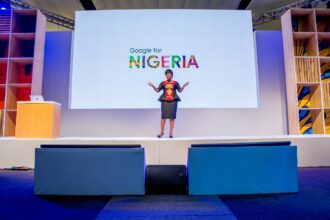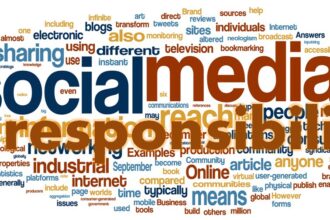Nigeria’s Digital Landscape Booming: How Over 320 Million SIM Cards Drive Mobile Commerce and Social Media Trends
- Nigeria’s Digital Landscape Booming: How Over 320 Million SIM Cards Drive Mobile Commerce and Social Media Trends
- The Expanding Mobile Ecosystem in Nigeria
- Trends in Mobile-First Commerce in Nigeria
- Social Media Engagement as a Driving Force in Nigeria
- Technological Innovations Fueling Nigeria’s Digital Boom
- Conclusion
Nigeria’s growth in online services is moving super fast. Every day, more people get connected through their phones, pushing the country into a new digital era. Over 320 million SIM cards are in use, and 222 million mobile phone connections already shape how Nigerians shop, connect, and share. This shift isn’t just about technology; it’s changing the way Nigeria operates — socially, economically, and culturally. Let’s dive into how this mobile explosion is fueling businesses, influencing culture, and opening up opportunities for everyone involved.
The Expanding Mobile Ecosystem in Nigeria
Nigeria’s Mobile Penetration and Connectivity Landscape
With more than 320 million SIM cards and 222 million mobile devices, Nigeria has one of Africa’s biggest mobile markets. That’s roughly two SIM cards for every person. Why is this happening? Lower smartphone prices, better network coverage, and affordable data plans make it easier for people to stay connected all day. Mobile networks are expanding quickly, especially in urban centers and even some rural zones.
Implications of High Mobile Usage
Having so many Nigerians hooked to their phones means more than just calling and texting. Mobile devices become the primary way people access the internet, banking, and even health info. It’s not just about convenience; it’s about inclusion. For many, their phone is their bank, their job portal, and their social hub — all rolled into one device. As mobile connectivity grows, so do the chances for financial inclusion and digital literacy.
Also Read: DStv Tests Weekly Subscriptions, in a Brilliant Move to Retain Customers in 2025
Trends in Mobile-First Commerce in Nigeria
Growth of E-commerce and Mobile Payments
Mobile money is taking off fast in Nigeria. Users now buy everything from clothes to groceries through apps and websites optimized for phones. Mobile payment platforms like Paga, Paystack, and Flutterwave are making transactions quick and safe. Last year, mobile commerce transactions hit new highs, showing how Nigerians prefer shopping on their devices.
Role of Mobile Devices in Retail and Service Sectors
Small businesses and startups are using mobile-first strategies to reach more customers. For example, local sellers now set up WhatsApp shops or use Instagram to showcase their goods. This approach saves money and helps them grow faster. Some businesses even go fully digital, with mobile apps and mobile-based loyalty programs. These models are opening new doors for entrepreneurs across Nigeria.
Challenges and Opportunities
There are hurdles, like weak infrastructure in some areas and cybersecurity worries. Regulations are still catching up with new payment systems. But these challenges aren’t stopping growth. Entrepreneurs can thrive by focusing on secure, easy-to-use mobile services and doing thorough market research to meet local needs.
Social Media Engagement as a Driving Force in Nigeria
Dominant Platforms and User Demographics
Facebook, WhatsApp, Instagram, and TikTok are wildly popular in Nigeria. Young people, especially ages 18-34, dominate social media usage. They share videos, join groups, and follow influencers daily. Brands targeting these audiences focus heavily on social media to boost their reach.
Influence on Culture, Politics, and Consumer Behavior
Social media isn’t just entertainment; it shapes opinions and drives change. Campaigns on Facebook or Twitter have swayed elections, pushed for social reforms, and spread viral challenges. Businesses use social platforms to launch new products, run targeted ads, and connect directly with customers. It’s become an essential part of marketing in Nigeria.
Strategies for Effective Social Media Engagement
For brands that want to succeed online, creating localized content is key. Use language and themes that resonate locally. Partnering with influencers helps build trust. Trending topics and hashtags can give your brand a boost. Engaging with comments and feedback keeps followers loyal and involved.
Technological Innovations Fueling Nigeria’s Digital Boom
Infrastructure Developments and Rural Connectivity
Telecom companies are rolling out faster networks, including 4G and now 5G. More rural communities are getting connected thanks to new initiatives and government support. Better infrastructure means smoother internet for everyone, not just cities.
Mobile Financial Technologies and Digital Inclusion
Mobile banking is changing lives. Many Nigerians never had access to traditional banks but now use mobile wallets, agents, and digital loans. These tools are helping people save money, pay bills, and start small businesses. They also improve overall financial literacy.
Future Trends and Opportunities
Emerging tech like AI, blockchain, and the Internet of Things (IoT) show promise for Nigeria. Startups are experimenting with smart solutions in agriculture, health tech, and energy. Investors see Nigeria as a hot spot for tech growth thanks to this rapid innovation.
Check out: 9 Benefits of Investing in Nigeria
Conclusion
Nigeria’s digital growth is driven by a massive number of mobile connections. With over 320 million SIM cards and 222 million mobile phone connections, the country is pushing forward in mobile commerce, social media engagement, and technological innovation. Businesses that understand these trends and adapt quickly will find plenty of opportunities in this vibrant market. If you’re planning to tap into Nigeria’s digital future, the message is clear: stay connected, stay relevant, and keep evolving.






